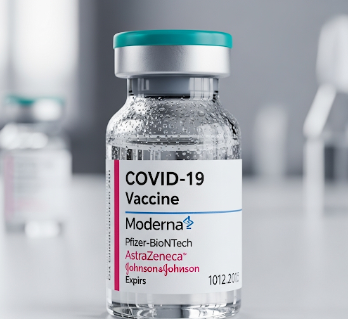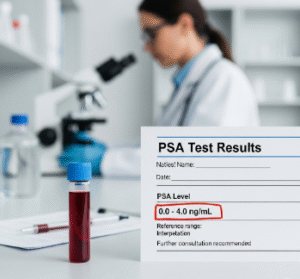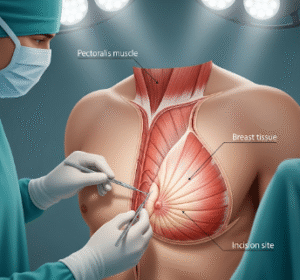Overview
The COVID-19 vaccine is a biological preparation that provides immunity against SARS-CoV-2, the virus responsible for COVID-19. Vaccination is a critical tool in preventing infection, severe disease, and mortality, and has played a central role in global pandemic control.
Importance of COVID-19 vaccination:
- Protects individuals from severe illness, hospitalization, and death.
- Reduces virus transmission in communities.
- Supports herd immunity to curb outbreaks.
- Enables safe return to normal activities, travel, and economic recovery.
In South Korea, COVID-19 vaccines are widely available through hospitals, public health centers, pharmacies, and workplace vaccination programs, ensuring accessibility for all eligible populations.
Why It’s Done
COVID-19 vaccination is performed to stimulate the immune system to recognize and fight SARS-CoV-2, reducing the risk of infection and serious complications.
Common indications include:
- ➤ All eligible adults and children according to national vaccination guidelines.
- ➤ High-risk populations: Elderly, immunocompromised, healthcare workers, and individuals with chronic conditions.
- ➤ Travelers to countries requiring vaccination proof.
- ➤ Community protection: To reduce spread in schools, workplaces, and public spaces.
Benefits of vaccination:
- ✔️ Reduces severity and duration of illness in case of infection.
- ✔️ Minimizes hospitalization and intensive care needs.
- ✔️ Decreases mortality rates in high-risk groups.
- ✔️ Contributes to public health safety and outbreak prevention.
- ✔️ Enables resumption of social, educational, and economic activities safely.
Alternatives
While vaccination is the most effective preventive measure, alternatives or complementary strategies include:
- ➤ Mask-wearing to reduce transmission.
- ➤ Hand hygiene and surface disinfection.
- ➤ Physical distancing in crowded or high-risk areas.
- ➤ Testing and isolation protocols for suspected or confirmed cases.
- ➤ Antiviral medications for treatment after infection.
Key point: Vaccination is the primary preventive strategy, while other measures support containment and protection in high-risk scenarios.
Preparation
Proper preparation ensures safety, effectiveness, and minimal side effects.
Steps include:
- ✅ Consultation: Discuss any allergies, past vaccine reactions, or chronic conditions with a healthcare provider.
- ✅ Medical history review: Include current medications, pregnancy status, or immunosuppressive treatments.
- ✅ Schedule vaccination: Follow national guidelines for dose intervals.
- ✅ Pre-vaccination care: Stay hydrated, avoid fever-reducing medications unless advised, and prepare for potential mild reactions.
- ✅ Documentation: Bring identification and vaccination record card (if applicable).
Important: Adhering to recommended dose schedules and guidelines maximizes immunity.
How It’s Done
COVID-19 vaccines are administered as intramuscular injections, usually in the upper arm.
Procedure steps:
- Registration and screening: Verify eligibility, review medical history, and explain potential side effects.
- Injection: Administered by trained healthcare personnel using sterile techniques.
- Observation: Recipients monitored for 15–30 minutes post-vaccination for any immediate reactions.
- Second or booster doses: Administered according to vaccine type and national schedule for optimal immunity.
Types of vaccines used:
- mRNA vaccines (e.g., Pfizer-BioNTech, Moderna): Stimulate the immune system to produce viral spike protein antibodies.
- Viral vector vaccines (e.g., AstraZeneca, Janssen): Use harmless virus vectors to deliver spike protein instructions.
- Protein subunit vaccines: Contain harmless viral proteins to elicit immune response.
- Inactivated virus vaccines: Contain killed virus to stimulate immunity without causing disease.
Key point: COVID-19 vaccines are safe, effective, and rigorously tested for both short-term and long-term use.
Recovery & Post-Care
After vaccination, most individuals experience mild, self-limiting side effects.
Immediate post-vaccination care:
- Monitor for allergic reactions for 15–30 minutes.
- Manage discomfort with ice packs, rest, or mild pain relievers if advised.
- Maintain hydration and rest.
Short-term side effects:
- Pain or swelling at the injection site
- Fatigue, headache, fever, or muscle aches
- Mild chills or nausea
Long-term outcomes:
- Strong antibody and cellular immunity develops over 1–2 weeks post-vaccination.
- Booster doses enhance long-term protection against variants.
- Vaccination reduces hospitalization, severe disease, and mortality.
Important: Even vaccinated individuals should continue masking, hand hygiene, and avoidance of high-risk exposure during outbreaks.
Possible Complications / Risks
COVID-19 vaccines are generally safe, but potential adverse effects may occur:
- ⚠️ Common mild reactions: Injection site pain, fatigue, headache, mild fever, muscle aches.
- ⚠️ Moderate reactions: Fever, swelling of lymph nodes, nausea, or dizziness.
- ⚠️ Rare severe reactions: Anaphylaxis, myocarditis, pericarditis (mostly in young males), or thrombotic events (specific vaccines).
- ⚠️ Allergic reactions: Require immediate medical attention.
- ⚠️ Ineffective immunity: Immunocompromised individuals may have reduced response; boosters recommended.
In South Korea, all vaccines are approved by the Ministry of Food and Drug Safety (MFDS), with post-marketing surveillance to monitor safety and efficacy.
Treatment Options / Clinical Relevance in Korea
COVID-19 vaccination in South Korea is widespread, efficient, and part of the national public health strategy.
Key features:
- 🏥 Vaccines available at hospitals, public health centers, pharmacies, and workplaces.
- 🏥 National program includes priority vaccination for high-risk groups and boosters for all eligible individuals.
- 🏥 Advanced cold chain management ensures vaccine potency and safety.
- 🏥 Digital platforms allow appointment scheduling, certificate issuance, and side effect reporting.
- 🏥 Integration with public health measures ensures rapid outbreak containment and high vaccination coverage.
Highlights in Korea:
- ✔️ High vaccination coverage contributes to reduced severe COVID-19 cases and mortality.
- ✔️ Booster campaigns target emerging variants for sustained immunity.
- ✔️ Vaccination combined with masking, testing, and public health measures ensures comprehensive pandemic control.
- ✔️ Accessible for all eligible populations, including children, adults, and elderly.
- ✔️ Monitoring and reporting systems ensure rapid detection of adverse events and effective management.
Highlights
- ➤ COVID-19 vaccines provide immunity against SARS-CoV-2 and reduce risk of severe disease.
- ➤ Indicated for all eligible populations, especially high-risk groups, healthcare workers, and travelers.
- ➤ Alternatives include masking, hand hygiene, distancing, testing, and antivirals for treatment.
- ➤ Preparation involves consultation, medical history review, adherence to schedule, and hydration.
- ➤ Administered as intramuscular injection with monitoring for immediate reactions; booster doses enhance protection.
- ➤ Post-vaccination care includes observation, management of mild side effects, and continued preventive measures.
- ➤ South Korea provides widespread access, robust safety monitoring, and integration with public health measures for effective pandemic control.













